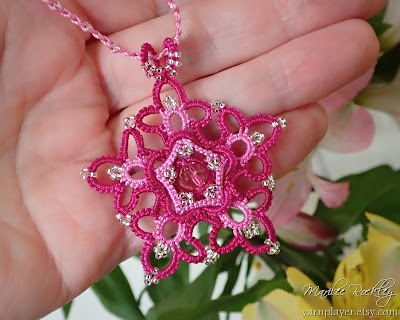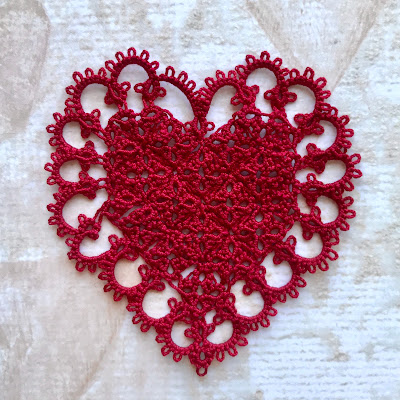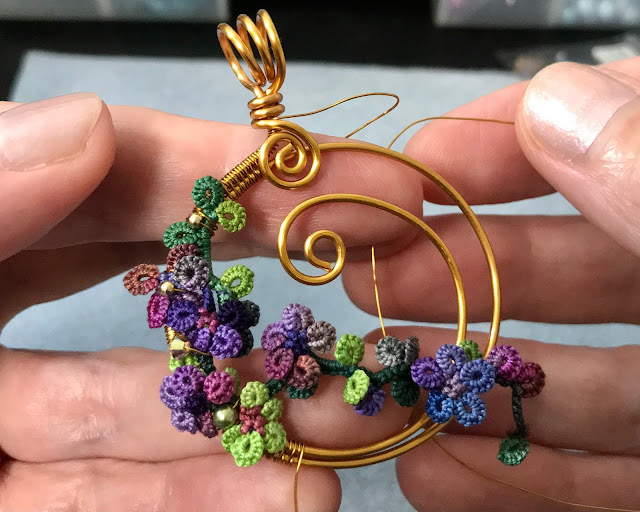Mermaid vibes, perhaps?
This is my "Fairest" bracelet pattern tatted in size 10 Lizbeth No.715 "Maple Butter" which I think makes a nice warm, sandy beach color. Paired with aqua colored beads, it reminds me of summer days. I took a green screen shot with my smartphone against a video of Lake Michigan taken last summer. (There's an app for that!)
For this bracelet I decided to use a sliding knot closure in nylon macramé cord, laced up corset style. In my Etsy listing there is a short video showing how to put on and tighten the sliding knot by yourself.
Also recently listed a Star Capella pendant in hand dyed aqua accented with some of the Lizbeth thread.
A new hand dyed thread batch has occurred to me, and I'll be working on that within the next few days, to be listed in the new year! I'll probably call it "Seaside" since I already have a batch with beach in the title (Beach Café). My goal is to have it gently shading from aqua to a sandy beach color. We will see how it turns out!






















































